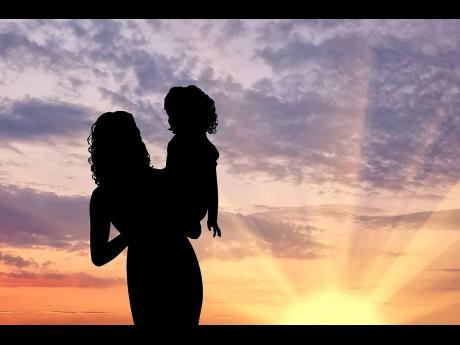Beyond the stigma: Allisah’s journey from HIV diagnosis to motherhood
Allisah* is excited about Jamaica’s certification of having eliminated mother-to-child transmission of HIV and syphilis, and she has every right to be.
Diagnosed at just eight months old, Allisah has lived with HIV for almost her entire life. Born healthy, Allisah contracted the virus from her mother through breastfeeding. It wasn’t until a hospital visit for a blood test that the diagnosis was revealed. Both Allisah and her mother were swiftly put on antiretroviral treatment to manage their condition, which they continue to take to this day.
Throughout her adolescence, Allisah remained oblivious to her HIV status, but she wondered why she had to take medications daily. However, her mother attributed this to a respiratory condition, for which she encouraged her to remain compliant.
“I was taking medication every day, but after a while I got tired of taking them and flushed them down the toilet,” Allisah confessed. But her health soon deteriorated, resulting in multiple hospital admissions. It wasn’t until she was 16 that a relative disclosed her HIV status, a revelation that shook Allisah’s world and left her grappling with its implications for her health and social life.
Living with this secret burden, Allisah navigated high school cautiously, always careful to hide her condition from friends and classmates. “I didn’t feel I could trust them. So, when I had to take my medication, I would just go off and take them in secret,” she said. As Allisah got older, rumours about her and her mother’s HIV status started circulating in her community; however, she remained resilient in the face of discrimination and stigma.
REMAINED UNDETECTABLE
After leaving high school, Allisah contemplated her future, particularly finding a partner who would accept her HIV status. That opportunity arose when she met a supportive man who, after learning the truth, chose to continue their relationship despite his negative status. Several years into their relationship, they decided the time was right to start a family.
All this time, Allisah consistently took her medication to ensure the virus in her body remained undetectable. This meant that her partner, too, remained HIV negative. Some months later, Allisah found out she was pregnant. “I was happy when I got pregnant, but I was also worried about my baby and if she would have to live with HIV, too,” she shared. However, she knew that once the virus was undetectable in her body, she could deliver a baby who was HIV-free. Armed with this knowledge, Allisah was determined to do all she could to protect the health and well-being of her unborn child.
Allisah’s pregnancy turned out to be relatively easy, and this ease carried over into delivery, which she described as “uncomplicated” when the time came to welcome her baby girl. Since Allisah’s virus was undetectable in her blood, she was able to deliver her baby vaginally with no fear of transmission. Following childbirth, both Allisah and her baby were tested, with the result showing her baby was HIV-negative and healthy, which is exactly what she had hoped for.
Despite the joy and triumph of delivering a healthy baby, emotional moments still surfaced, particularly regarding breastfeeding. To allay her concerns, Allisah received counselling and information from her medical team, which guided her decision against breastfeeding based on her own experience of contracting HIV from her mother’s milk.
A few years have passed since Allisah gave birth, and she now looks back on her life with gratitude for how far she has come. “When my relative told me at 16 that I was HIV-positive, I thought my life was over. I couldn’t sleep for many nights because I was worried about my future,” she reflected. Today, Allisah has her own family, something she thought her HIV status would deny her. Despite wishing she never had the virus, she is grateful that her daughter is HIV-free and looks to the future with the expectation that scientists will eventually find a cure for HIV in her lifetime.
Belize, Jamaica, and St Vincent and the Grenadines are the latest countries in the Americas to receive certification from the World Health Organization (WHO) for eliminating the mother-to-child transmission of HIV and syphilis. The milestone was marked at a commemorative event organised by the Pan American Health Organization (PAHO) in Kingston, Jamaica, with support from UNICEF and UNAIDS, and with the participation of health ministers from the three countries.
The Pan American Health Organization Elimination Initiative seeks to put an end to more than 30 communicable diseases, including the mother-to-child transmission of HIV and syphilis, in Latin America and the Caribbean by 2030.
The initiative was relaunched during the organisation’s 60th Directing Council and seeks to harness the lessons learnt from the COVID-19 pandemic, as well as from previous elimination experiences to accelerate disease eradication in the region.
*The article is based on a factual account, and the name has been changed to protect the individual’s privacy.
PAHO office in Jamaica contributed to this article.

